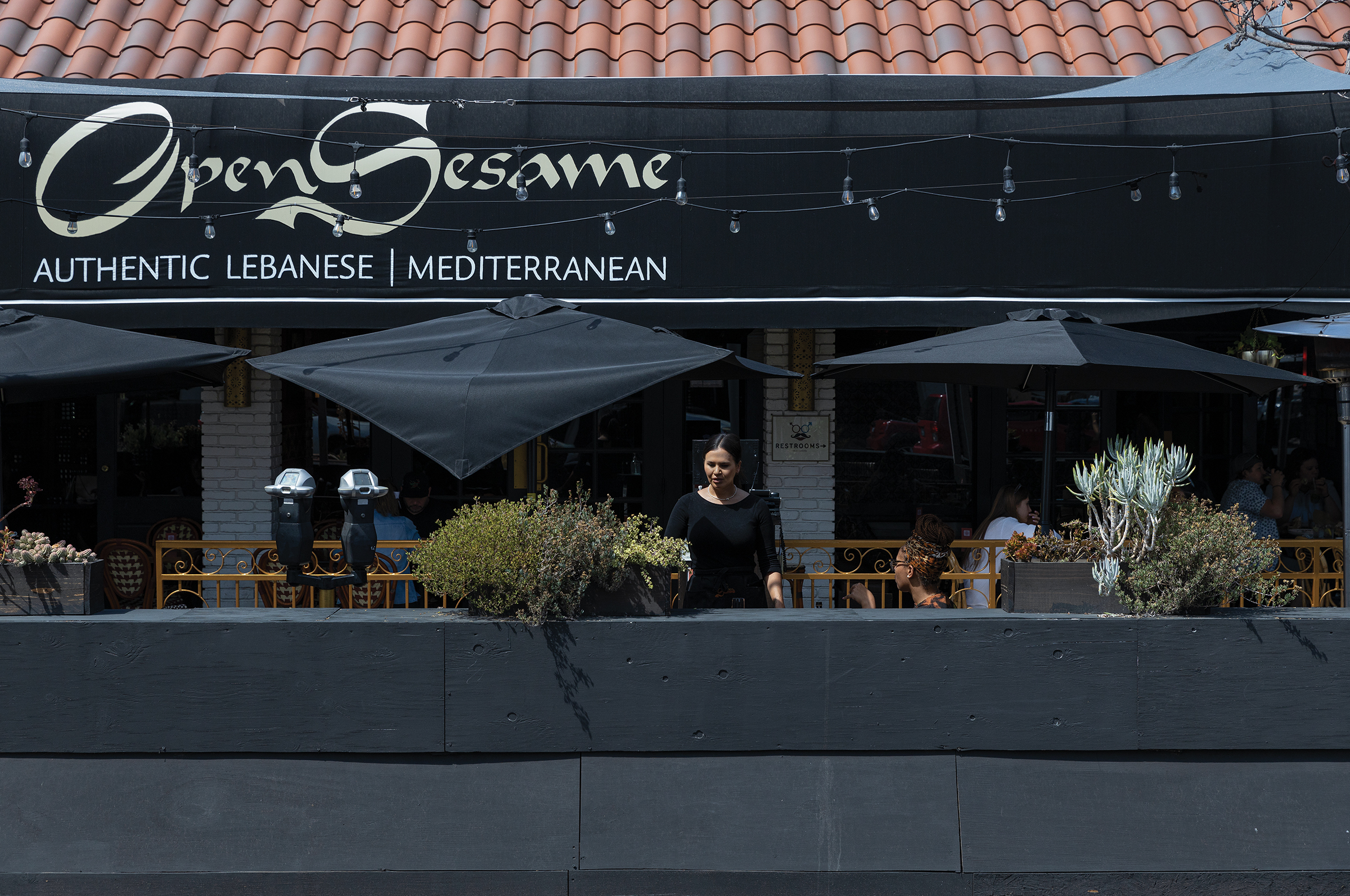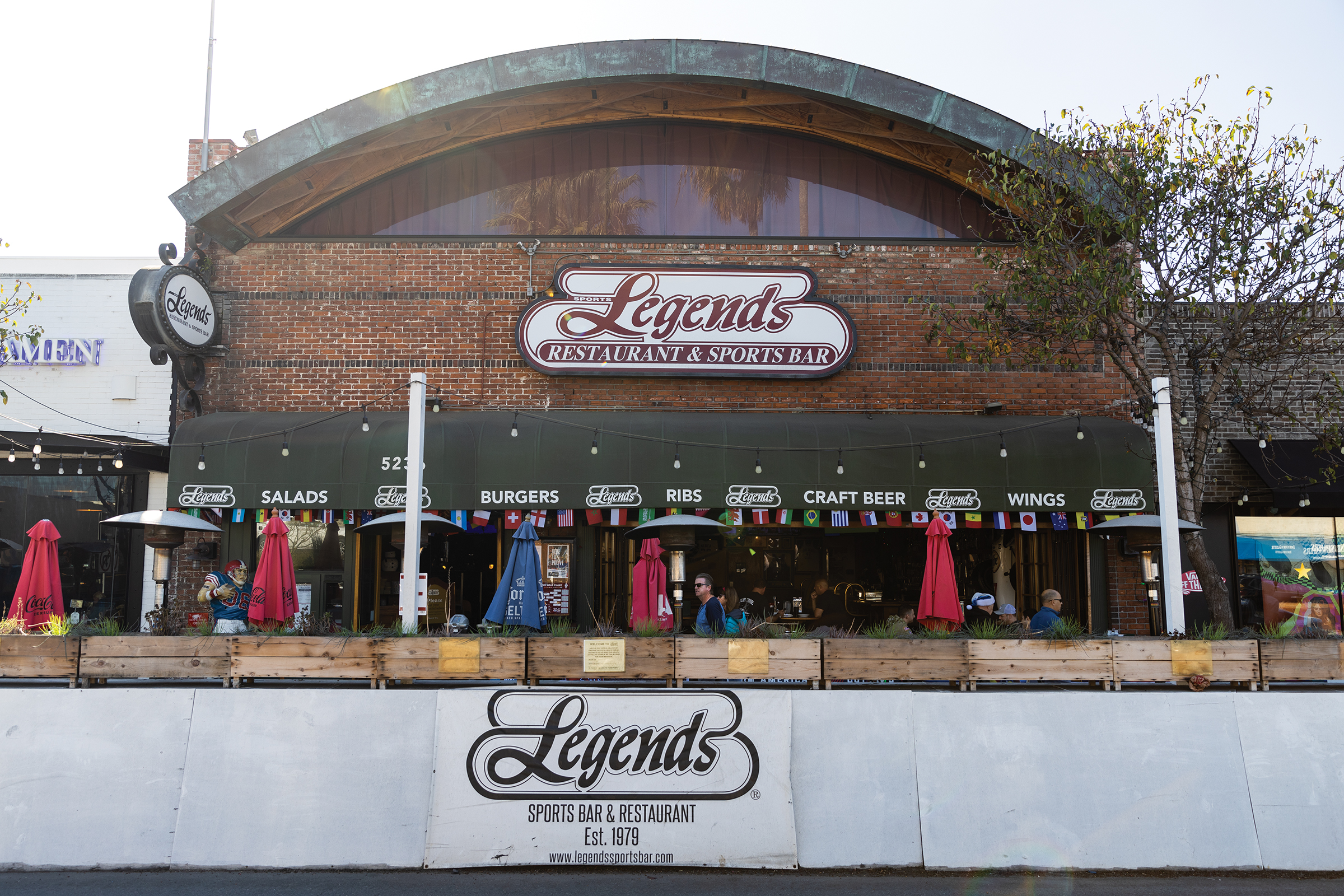This week, residents may have noticed an abrupt disappearance of the many parklets that cropped up across Long Beach during the pandemic.
All COVID-era outdoor dining areas had to be removed by Jan. 31, as the city directs business owners to an entirely different application process for permitting and constructing permanent parklets.
As of Monday, at least 21 businesses had applied, according to Joy Contreras, a spokesperson for Public Works. Twelve of those applicants are in the Belmont Shore area, she said.
The permanent process starkly contrasts 2020’s Open Streets Program, under which businesses could build parklets and expand outdoor dining with no fee attached.
It now comes with a price tag, a long bureaucratic to-do list and a set of stringent construction guidelines. To approve a permanent parklet, the city will consider a laundry list of factors such as local speed limits, pedestrian safety and proximity to public utilities or storm drains, as detailed by the city’s original parklet law adopted in 2018.
Applicants will be required to post a public notice for 30 days, much like those posted when applying for an alcohol license. Any opposition received would trigger a hearing before the City Council, but the council will have final say on whether a parklet will be approved.
Beginning March 1, applicants will be able to post these notices, and the wait will officially begin.
“It will be a really long time I think,” Heather Kern, executive director of the Belmont Shore Business Association said on Monday. “I don’t even think we could get one by summer.”

Parklet applications can cost restaurants anywhere from $2,000 to $4,000 depending on a number of factors such as square footage and design. For businesses in areas like Belmont Shore, owners will first be required to obtain a Coastal Zone development permit for parklets, which will cost an extra $6,200.
City permits are nonrefundable, but businesses are advised before they submit whether their application is feasible, Contreras said. Permit costs are used to cover staff time for review and processing of applications, she added. As for the coastal permit, the fee can be partially refunded if the application is withdrawn.
“It’s really cost intensive, this whole process,” Contreras said.
Matt Peterson, co-owner of Legends in Belmont Shore, agreed that it is a tedious process, but that was anticipated, he said.
“I don’t have a PhD in civics, but we’re gonna make our way through it,” he told the Post.
When it’s all approved and built, it will likely cost Legends somewhere between $60,000 to $70,000, Peterson said. In fact, he says it’s a good thing that the Shore’s sea of makeshift parklets had an expiration date.
“It was cute while it lasted and it achieved the purpose, but what we learned through that process is, wow, a lot of people really enjoy parklets,” he said.
But some resident groups and business owners are at odds as to whether parklet dining should carry into the post-pandemic era.
“They were ugly, they were sort of falling apart, they had graffiti all over them,” said Melinda Cotton, who’s lived in Belmont Shore for 40 years and is a member of the Residents Association and Parking, Not Parklets. “Fortunately, they’re gone this week.”
To Peterson, the most onerous part of the process will be facing groups who vehemently oppose parklets.
“Anybody who owns a restaurant or bar or food service is allowed to apply. So there’s no limit on the ones that might possibly be allowed,” Cotton said.
Peterson says, however, the cost, among other requirements, will serve as a natural filter.
Within the 3rd City Council district, the Second Street corridor holds the largest number of restaurants than any other street in the city, Kern previously told the Post. The area has been at the center of the parklet debate.

Cotton says parklets gobble up parking spaces and pose safety risks for both pedestrians and restaurant patrons sitting so close to heavily trafficked corridors like Second Street.
Previously, neighborhood groups could block a permit from being issued, but the City Council nixed that when it limited their role last month. On Jan. 17, the council voted to amend its municipal code to make community input just one part of the application process.
But Peterson said he isn’t confident that opponents won’t prolong or derail the application process for businesses altogether.
“If you think they’re limiting input, just wait until the next City Council meeting,” he said, adding that “it seems like this very few number of people are shaping the narrative for thousands and thousands of people that really, really enjoy this aspect.”
Peterson said parklets triggered a “renewed vigor for coming down to the Shore.”
“Lots of people that hadn’t come in a long time were saying, ‘Let’s walk down there with the dog and get a sandwich, let’s sit in the sunshine,’” Peterson said. “It’s not a novel concept, yet, for a few people—and I’ll speak to this neighborhood—they just want to oppose, to oppose.”
Cotton argues that parklets made it difficult or in some cases impossible for those with physical disabilities to make it down the sidewalk. One of those residents, Cotton says, is Julie Dean, who travels in a motorized wheelchair.
Last month, Dean, president of the Belmont Shore Residents Association, said that the parklets presented safety issues for those who have to contend with waitstaff crossing the sidewalk to deliver food and drinks to people dining in the parklets.
“The sidewalks do not belong to the businesses, but they’re acting like it, in addition to taking over the parking spaces,” Dean previously said. “If these restaurants, bars and gyms want more outdoor dining space, they should have leased a piece of land with more outdoor dining space. Instead, they’re just being greedy and using the free land of our city.”
Colossus owner Kristin Colazas Rodriguez is among Second Street applicants working to get her parklet back, and told the Post last week that her parklet was beloved by her customers and also added popular seating to her small cafe.
Rodriguez said the absence of her parklet makes the area in front of her cafe feel less safe.
“We have a lot of kids around, babies, dogs—so it just felt a lot safer to have this space where you could have your kids sitting down and not worry about them getting hit by a car that’s pulling in really fast,” she said.

